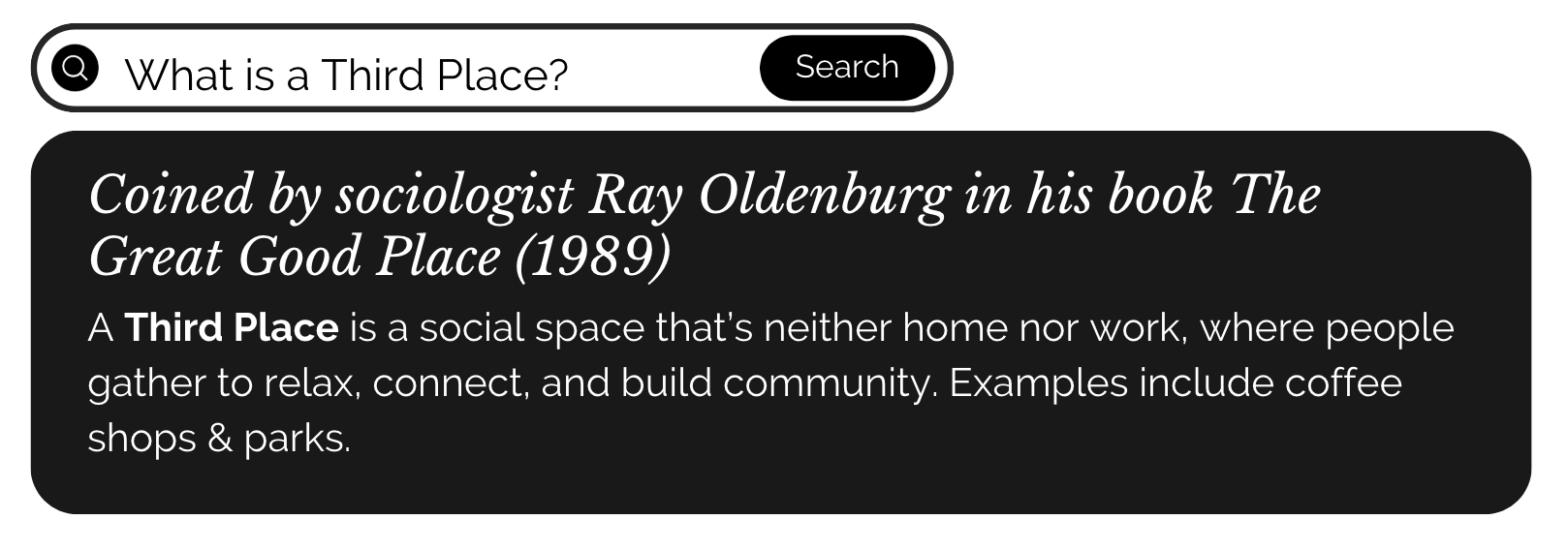Cafés in L.A.: The Quiet Architects of Community
In a sprawling city like L.A., coffee shops are not just places to grab a drink—they’re urban lifelines.
Coffee shops, L.A. needs you! More than just serve coffee; you provide a sense of community in this vast city of Lonely Angels.
Why we need you...
The Bubble Life
L.A.’s car-centric culture and sprawling design make it hard to feel a sense of society. With fewer parks, plazas, and walkable spaces, most daily life happens in cars or in private spaces, limiting spontaneous encounters. For those without an established community, the feeling of isolation can be overwhelming. Coffee shops help fill that void—offering a sense of togetherness, even in silent co-existence.
Remote Working
Since Covid, how we work has drastically changed, or better said - where we work. We’ve shifted to remote and hybrid models and countless people have launched online businesses and prefer work-from-home lifestyles. While having a home office is comfortable, it lacks the social aspects and networking opportunities of an office. Coffee shops are the next best thing after co-working spaces that replace the rewards of office culture.
Building Connections
Building real connections involves consistent interaction. L.A.’s size and traffic make frequent meetups challenging, especially in the early stages when it’s still hard to gauge the potential of a new relationship. Coffee shops are soft spaces that make meeting new people easier, and their frequentability increases the likelihood of forming deeper connections.
A Third Place
With few vibrant parks and plazas to act as meeting points, coffee shops become that "Third Place." Whether it's chilling with a book, catching up with a friend, meeting someone new, or simply taking yourself out, these spaces provide a safe environment to let your guard down and enjoy being out.
We rely on Coffee Shops for so many things:
networking , catching up , coffee dates , casual lunches , morning coffee runs , journaling , evening tea , reading , meditating , people-watching , sketching ideas , writing , planning projects , book clubs , hobby groups , community discussions , birthday brunches , freelancer connections , open mics , markets , live music , remote work , client meetings , coworking sessions , meetups
Great spaces aren’t everything - they’re something.
Brainstorming Nook • First-Date Favorite • Freelancer Workspace • Networking Hub • Event Space • Book Lover’s Corner
The Keys to a Thriving Coffee Shop:
For coffee shop business owners, tuning into the needs of the people you want to attract is the key to building a sustainable business and a thriving community.
Here’s an example from a previous project:
In a city like L.A., coffee shops can be sanctuaries that are essential to our daily routine and emotional well-being. As a newcomer to the city and a remote worker, I’ve found it to be one of the most challenging cities to establish a sense of community, meet like-minded people and build friendships.
Who’s it for? What’s it for?
Is it for big groups, small groups, or individuals?
Does it cater to introverts, extroverts, or both?
Is it trendy, niche, or low-key?
Are you attracting regulars, newcomers, or a mix?
Is it a space to be social or quiet?
Do you want to host events or workshops?
Is it a quick stop or a place for long stays?
Are you open to pop-ups and collaborations?
Community begins with a sense of belonging. Whether it’s a barista remembering your order or seeing familiar faces, these small moments add up to a larger sense of connection that can make a big city feel a little smaller.
Overhearing a conversation, noticing someone’s book, or asking to borrow something - coffee shops expose shared values and interests sparking curiosity for more. Now familiarity, layered with common interests is fertile soil for deeper connection.
Of course, coffee shops aren’t the only spaces where this happens: gyms, clubs, and even bars can play similar roles. In a city like L.A., these venues compensate for an urban experience that’s not designed around bringing people together but around giving people their space. They provide the glue that holds a fragmented urban life together.
By seeing the city as a backdrop to our lives, we can identify the needs of the community we’re serving. When businesses step in to fill those voids, they offer something a lot more meaningful than a transactional exchange; an emotional value that’s irreplaceable.



